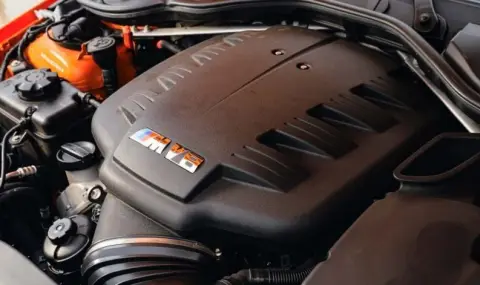In 2022, the European Union finalized plans to effectively ban the sale of new cars with internal combustion engines from 2035. However, those plans were tempered after Germany and other countries with advanced auto industries pressed lawmakers to make the plans more realistic. In 2023, it was decided to extend the life of internal combustion engines in the EU thanks to the use of synthetic fuel.
Now BMW CEO Oliver Zipes has warned that even if sales of new synthetic fuel cars are allowed after the middle of the next decade, the result could be the same: a de facto ban on cars with internal combustion engines. This will have huge implications for the whole world as many of the major car manufacturers are based in Europe.
„There are now many signs that the European Commission is aiming for a bogus solution where the ban on internal combustion engines is relaxed only by the alleged use of eFuels. However, if this does not help accelerate the introduction of low-carbon fuel and make its use practical, it would be a deliberate backdoor ban on internal combustion engines, “ Zips said.
Unlike most of its competitors, BMW does not want to set an end date for internal combustion engines. While Mercedes and Audi have recently scaled back their EV targets, BMW insists the diesel's death need not be forced. Speaking on a conference call after the publication of the company's half-year report, the BMW boss said: “We continue to believe that a complete ban on LPG is wrong.“
This statement comes from a company that is actually selling more electric cars than ever before. In the first six months of the year, the BMW Group's all-electric cars accounted for 15.7% of all deliveries. This is an increase of 12.6% on an annual basis. Deliveries of zero-emission BMW, Mini and Rolls-Royce cars rose 24.6% to 190,614 units in the year to June inclusive.
Oliver Zipes thinks regulators should not rush to ban internal combustion engines. Instead, he argued that the EU should promote the introduction of low-CO2 fuels as soon as possible, not only for new cars, but also for the existing fleet. The head of BMW notes that there are more than 250 million cars in the 27 countries of the EU.
„The most significant contribution to climate protection is the one we can make today: in other words, every tonne of CO2 we can save today, rather than sometime in the future, matters. It also includes requiring and promoting the use of low CO2 fuels such as e-fuel, E25 or HVO100 – as soon and as widely as possible".
E25 contains 25% ethanol and 75% gasoline. The most interesting to date is the synthetic fuel HVO100, which is a substitute for diesel. It is a fossil-free hydrotreated vegetable oil produced from fully renewable sources such as cooking oil, for example. BMW's hydrogen partner Toyota sells the Land Cruiser and Hilux in Western Europe with HVO100-compatible diesel engines. Toyota claims that when the fuel is made from used vegetable oil, CO2 emissions are 90% lower than conventional diesel.
Although BMW defends internal combustion engines, the manufacturer predicts that the growth of electric vehicles will continue in the coming years. The company believes that by the end of the decade, pure electric vehicles will account for at least half of its annual sales. BMW Group's Mini and Rolls-Royce brands pledged to switch to all-electric engines at the time, leaving only the core BMW brand with diesel and petrol cars.
A few months ago, BMW sold its millionth electric car, some 11 years after the amazing i3 hatchback started the EV trend in Bavaria. The rest of this decade will be extremely busy, with at least six models based on the Neue Klasse scheduled to go on sale by 2028. Additionally, reports claim that there will be iX5, iX6 and iX7 electric SUVs based on the same CLAR architecture used in the petrol/diesel models.
